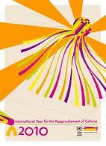There are certain methods of communication that rely heavily on non-verbal language. You may have heard of the high-pitched whistling of the Silbo language, which originates from the Spanish Island of La Gomera, used by goatherds to communicate across vast mountainous areas, but a full language of whistles has been present on the European continent for many centuries – whistled Turkish. Rather than using traditional letters with consonants and vowels, whistled Turkish uses a variety of clicks, whistles and calls to convey meaning by simply extending or shortening successive ‘chirps’ to form an entire sentence.
It could be assumed that, because two people are communicating and understanding each other, albeit in a completely different way, the same parts of the brain would light up when in use. It has recently been found, however, that the brain actually responds differently to this whistled language when it comes to processing incoming information in the form of pitch tones.
It is commonly understood that the left hemisphere of the brain is dominant when it comes to language processing, and any damage to this side of the brain can result in slurred speech and an inability to think rationally about a situation. A paper published in the prestigious Current Biology has shown that studies indicate that people using whistled Turkish on a daily basis are more likely to use both sides of their brain, the left and right hemispheres, when communicating.
To understand why this happens, imagine having a mouth full of food and asking your friend to pass the salt. You know what you mean when you say, ‘paff-ver-falt-preez’ (pass the salt please), and the word structure and sounds are pretty much there, but your friend then has to decipher what is being said – requiring extra effort from the other half of the brain. This is likely because the word bank stored on the left side of the brain needs information from the right side on how to process it effectively. It is when we have to make guesswork and assumptions about speech or language that our right brain is triggered, scanning our memories to understand what is being said.
The paper published in this science journal also suggests that the implications found from this discovery of using whistled Turkish could be hugely significant. Not only does it allow us to take a step closer in our understanding of non-verbal communication in both humans and animals, but at a later stage the findings could also help to pinpoint key areas of research in rehabilitating those who have suffered from a stroke. Furthermore, it also gives certain insight into people suffering from severe learning disabilities, and could help bring about more effective means of communication on a non-verbal level.


